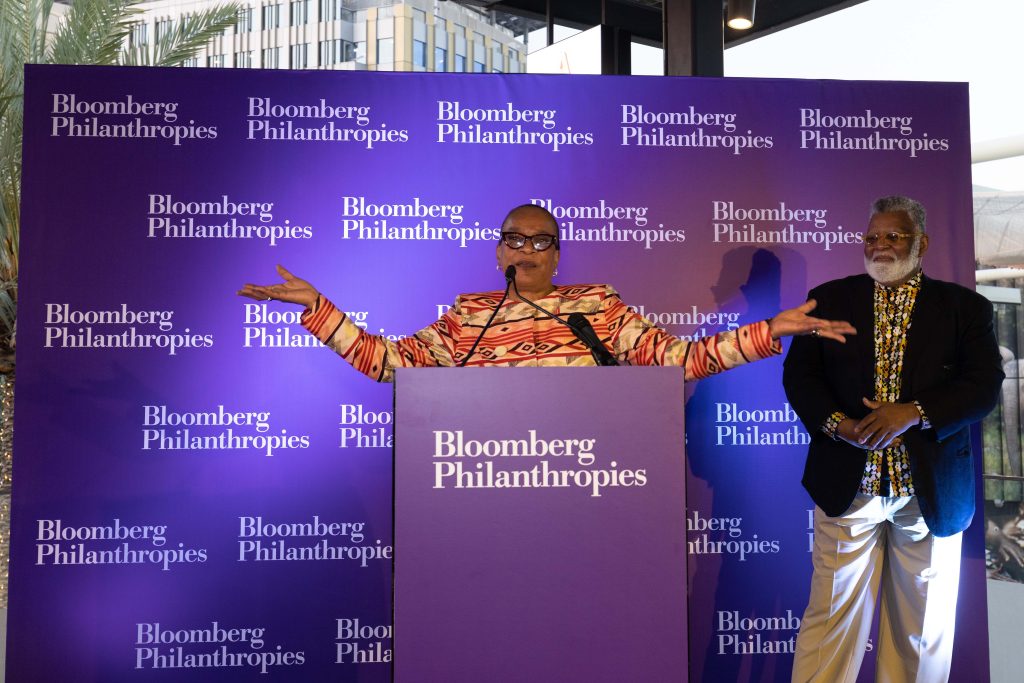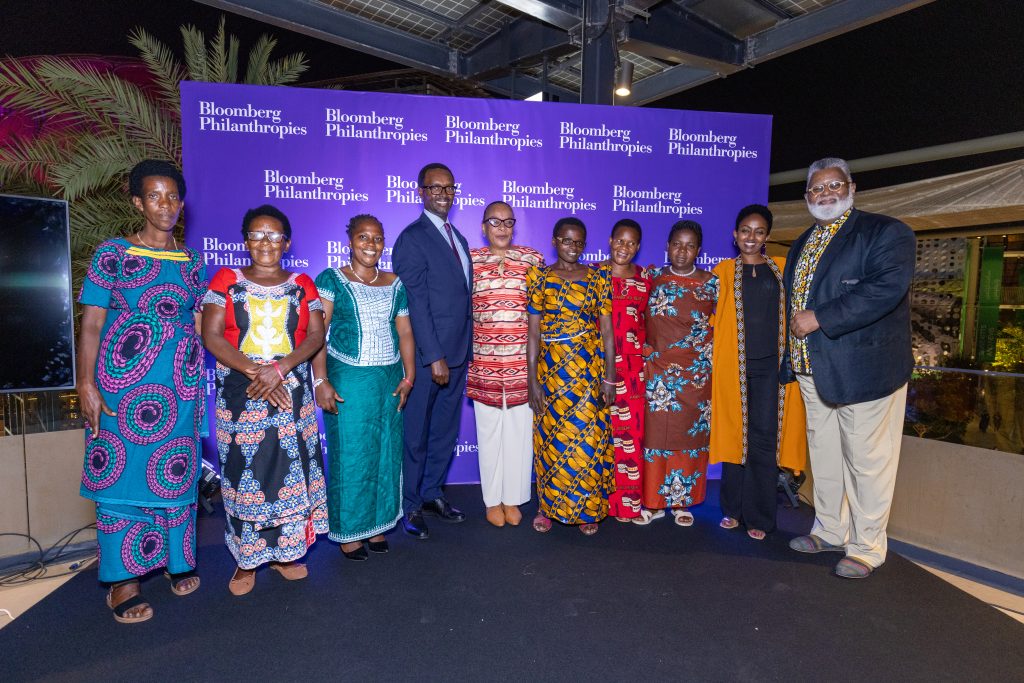5 New Year Questions for Verna Eggleston on Investing in Women’s Economic Development Around the World
Bloomberg Philanthropies’ Women’s Economic Development Initiative brings together government agencies, the private sector, and nonprofits to provide individuals with sustainable income-generating opportunities. Since 2007, Bloomberg Philanthropies has worked with partners to provide vocational training, financial literacy, and education on health and wellness to women and families across the Democratic Republic of the Congo, Rwanda, Nigeria, Sudan and Tanzania – and our investments in women’s economic development continue to expand around the world. Globally, Bloomberg Philanthropies has invested in more than 724,000 women which has benefitted more than 2.8 million children and family members. We welcome Verna Eggleston, who leads the Women’s Economic Development program, to reflect on the successes achieved in 2022 and what’s in store for the year ahead.

What accomplishments are you most proud of in 2022?
Despite some incredibly challenging conditions, our partners at Women for Women International, Sustainable Growers, Nest, and CARE continued to provide support for women and families. By the end of 2022, our partners collectively enrolled an additional 155,000 women in training programs—bringing our total enrollment to 724,000 women to date, with a secondary impact on 2.8 million family members.
At the World Expo 2020 in Dubai, a Chairing Committee and Evaluation Committee with representatives from international development organizations from around the world, recognized Sustainable Growers, a Bloomberg Philanthropies partner, as one of the best global practice programs for agricultural training for women. Our holistic model for economic development was cited for meeting four key pillars of the United Nations Sustainable Development Goals. I was also proud to be a part of a panel discussion with all of our partners at the Dubai Expo highlighting the success of the Sustainable Growers’ model as a scalable example of economic empowerment in the food and agriculture sector.
What was something that inspired or influenced your work this past year?
As world leaders convened in New York City for the UN General Assembly meeting in September, we had the opportunity to present our economic development model and introduce women enrolled in our program to high-networth women interested in using finance to spur change. This event was hosted at the United Nations in partnership with Citi Private Banking and the Foundation for the Support of the United Nations.
For the first time since COVID-19, we had the unique opportunity to bring together the leaders of the organizations we support in our portfolio and the women enrolled in the skills training programs. To listen to the panel and hear the collective success of our partners – while at the same time, looking at the faces of the women who have benefitted from these investments – was awe-inspiring. This day, this moment in time, reinforces the reason why we must continue doing this work and expand our efforts around the world, and has allowed me to focus on the areas where gaps still remain in women’s economic development.
What are you looking forward to in 2023?
Our work is based strongly on the belief that women are central to economic growth and that expanding opportunities and earning power for women strengthens communities. I’m looking forward to collaborating with our partners even further to help more women become economically independent.

What are some trends or challenges you believe we will see in the year ahead?
From having to address the consequences of inequality, I anticipate we will move away from “aid-programs” towards intentionally investing in efforts that propel women who are planning their own futures. We already do this by having the women enrolled in our programs complete individualized plans that map out specific skills training. These investments have shown an increase in women deciding to educate their children, purchase health insurance, and actively participate in local and national elections. With an increase in income and assets, the lives of the women enrolled in our programs – and that of their families, communities, and countries – continues to improve.
What is a piece of media you consumed this past year that you would recommend our readers check out in 2023?
Zainab Salbi – the founder of Women for Women International, the first organization Bloomberg Philanthropies worked with through our Women’s Economic Development program – has written an incredible book called Between Two Worlds. Our CEO Patti Harris asked that I read it when we first began thinking about what the program would focus on and how we would invest in women. Salbi’s personal journey – as a young woman without rights who became a public figure fighting for women who have been silenced and ignored for too long – has helped to inform the work we have done here at Bloomberg Philanthropies
Read more in the series:
5 End-of-Year Questions for Dr. Kelly Henning on Public Health
5 End-of-Year Questions for George Fertitta on Helping Cities Thrive
5 End-of-Year Questions for Antha Williams on Protecting the Planet
5 End-of-Year Questions for Brynne Craig on Responding to Urgent Needs Head On
5 New Year Questions for James Anderson on Helping Cities Bring Bold Ideas to Life
5 New Year Questions for Jemma Read on Bloomberg’s Commitment to Giving Back